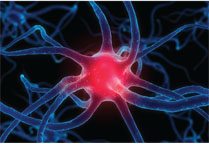 by Randy A. Sansone, MD, and Lori A. Sansone, MD
by Randy A. Sansone, MD, and Lori A. Sansone, MD
R. Sansone is a professor in the Departments of Psychiatry and Internal Medicine at Wright State University School of Medicine in Dayton, OH, and Director of Psychiatry Education at Kettering Medical Center in Kettering, OH. L. Sansone is a civilian family medicine physician and Medical Director of the Family Health Clinic at Wright-Patterson Air Force Base Medical Center in WPAFB, OH. The views and opinions expressed in this article are those of the authors and do not reflect the official policy or position of the United States Air Force, Department of Defense, or United States Government.
Innov Clin Neurosci. 2014;11(5–6):31–34
Funding: There was no funding for the development and writing of this article.
Financial disclosures: The authors have no conflicts of interest relevant to the content of this article.
Key words: Antecedents, herpes zoster, postherpetic neuralgia, psychiatric symptoms, psychological symptoms, shingles
Abstract: Herpes zoster and an associated complication, postherpetic neuralgia, are both attributable to the varicella zoster virus. This virus, which lies dormant within the affected sensory ganglia after an initial infection, appears to be triggered in part by a decrease in immunity. According to available research, stress, stressful life events, and depressive symptoms are identified antecedents to outbreaks of herpes zoster. Likewise, the development of postherpetic neuralgia has been associated with the psychological antecedents of somatization, nonspecific personality psychopathology, hypochondriasis, and somatic symptoms. Also studied, the role of mood and anxiety symptoms as antecedents for postherpetic neuralgia remains controversial. In conjunction with other factors (e.g., age, nutritional status, comorbid medical diseases), stress and psychological symptoms may contribute to a lowering of immunity and thereby function as antecedents as well as consequents of both herpes zoster and postherpetic neuralgia. Few studies have examined explicit psychiatric diagnoses and their association with varicella zoster virus reactivation.
Introduction
Herpes zoster (HZ), or shingles, is a painful outbreak of skin lesions along a dermatome. This outbreak is caused by the reactivation of varicella zoster virus. Specifically, following an initial infection with varicella, the virus persists in a latent form within the sensory ganglia of the affected dermatome. Then, for various reasons, the virus undergoes activation, which results in an outbreak of HZ. According to Johnson et al,[1] approximately one in four adults will contract HZ in their lifetimes, and there is a substantially increased prevalence after the age of 50 years. Likewise, Schmader[2] estimates that approximately 800,000 individuals in the United States will annually develop HZ, most often in the elderly or the immune-suppressed. Pain is the most predominant symptom in HZ.
In the aftermath of an outbreak of HZ, approximately 20 percent of individuals will develop postherpetic neuralgia (PHN).[1] PHN is characterized by persistent and unrelenting pain in the same dermatomal region as the original HZ outbreak.[1] The pain associated with PHN may persist for months to years, resulting in significant morbidity. In this edition of The Interface, we discuss the potential psychological factors that precede and may contribute to the development of HZ and PHN—relationships that are of relevance to both psychiatrists and primary care clinicians.
Psychological Antecedents in HZ
According to a review article by Livengood,[3] “the role of psychosocial stress in the development of HZ has been well documented.” In support of this statement, we will review the relationships between stress, stressful life events, and psychological symptoms, and the precipitation of HZ outbreaks.
Stress/stressful life events. In a 1990 study from the United States, Schmader et al[4] compared stressful life events and the status of spousal relationships between 101 individuals with HZ and 101 healthy controls. In this study, participants with HZ were significantly more likely than controls to report negative life events approximately two months before the onset of symptoms. However, there were no between-group differences with regard to changes in spousal relationships or any single life event.
In a 1998 study, Schmader et al[5] prospectively examined 2,568 individuals in a sample of North Carolina community dwellers over an eight-year period. The baseline age of participants was 73.6 years. Researchers examined perceived negative life events by participants and the subsequent appearance of HZ. In multivariate analyses, negative life events were weakly associated with the subsequent risk of developing HZ. In this study, researchers also examined social support variables, such as the presence or not of a confidant or spouse, but these were not associated with HZ risk.
In a 2004 controlled study from the United States, Mehta et al[6] examined saliva samples from eight astronauts for varicella zoster virus deoxyribonucleic acid (DNA). Samples were collected before, during, and after space flight. Prior to space flight, only one astronaut had detectable salivary levels of virus DNA, whereas after space flight, saliva samples from all eight astronauts were positive for varicella zoster virus DNA. None of the 10 controls in this study demonstrated active virus in their salivary samples. Researchers concluded that the varicella virus may subclinically reactivate in healthy individuals during exposure to stress.
Finally, in a study from France, Lasserre et al[7] examined 250 individuals with HZ for recent negative life events. In this study, a recent negative life event demonstrated a statistically significant relationship with an outbreak of HZ (odds ratio: 3.40, 95% confidence interval: 1.67–6.93).
On a cautionary note, one study reported a somewhat minimal relationship between stress and outbreaks of HZ. In this 1998 study from the United States, Schmader et al[8] examined 167 individuals who were 65 years of age or older. While researchers reported an increase in the number of negative life events among participants with HZ, these relationships were not statistically significant. However, the authors commented that the statistical findings leaned in the direction of a positive association between antecedent stress and HZ.
Psychological symptoms. In addition to stress, two studies have examined relationships between antecedent psychological symptoms and HZ. However, a larger number of studies have focused on psychological symptoms in the aftermath of HZ, most with regard to anxiety and depressive symptoms.
As for antecedent psychological symptoms, in a 1997 retrospective study from Singapore, Goh and Khoo9 examined the records of 164 patients with HZ. Approximately 20 percent of these patients reported at the time of presentation to their clinician the symptoms of depression and feeling helpless. In a 2012 case-controlled French study, Lasserre et al[7] reported among 250 patients a relationship between recent depression and the onset of HZ.
The remaining studies in this area have examined the presence of various psychological symptoms during or after the development of HZ. For example, in a 1992 study from the United States, Dworkin et al[10] examined 19 individuals with HZ and found that anxiety, depression, and less life satisfaction were associated with higher levels of pain following the outbreak. In a 2007 Italian study of 533 patients with acute HZ, Volpi et al[11] reported relationships between greater pain severity during the outbreak and anxiety/depressive symptoms. Finally, in a 2010 Canadian study, Drolet et al[12] examined 261 outpatients with HZ and noted that anxiety and depression were common in the aftermath of HZ onset.
Collectively, these preceding findings suggest that depressive symptoms may be antecedents to HZ outbreaks, whereas both anxiety and depression may follow HZ outbreaks and intensify pain symptoms. It is important to note that the majority of assessments for anxiety and depression in these studies were undertaken with self-report questionnaires, rather than clinical or interview-based diagnosis. Therefore, we can only state that anxiety and/or depressive symptoms were present. We cannot conclude from the present data that bona fide psychiatric disorders were in tow.
Psychological Antecedents in PHN
As noted previously, only a minority of patients with HZ subsequently develop PHN. Regardless, several studies have examined various types of psychological antecedents to PHN. For example, in a controlled study from the United States from the year 2000, Clark et al[13] examined 35 patients with PHN, using a structured diagnostic interview. In comparison with controls, the PHN cohort had significantly higher rates of major depression and somatization disorder prior to the development of the neuralgia.
In a 2005 study from the United States, Katz et al[14] prospectively examined 110 patients with HZ. In this cohort, 20 (18%) participants subsequently developed PHN. According to the self-report assessments used in this study, statistically significant risk factors for the development of PHN were nonspecific personality disorder symptoms, hypochondriasis, and somatic symptoms. In this study, no individual personality disorders were reported, but rather a summed score of personality pathology. Also, there were no relationships between anxiety or depressive symptoms and PHN. This study also included assessment of participants with a semistructured interview for mood disorders. These assessments with interviews did not yield any associations between major depression or dysthymia and the development of PHN.
In a 2008 prospective study from Italy, Volpi et al[15] followed during a six month period 219 patients with HZ. According to self-report measures at patient presentation and six months later, participants who subsequently developed PHN (32%) were found to have higher mean scores of anxiety and depression on self-report measures as well as reduced quality-of-life.
In keeping with the findings of Katz et al,14 another study also did not find that anxiety was an antecedent to PHN. Specifically, in this Dutch study from 2007, Opstelten et al[16] prospectively followed 598 participants with HZ; 7.7 percent subsequently developed PHN.[16] Using a self-report measure, researchers found that antecedent anxiety was not a predictor for PHN.
Among studies examining relationships between psychological antecedents and PHN, note that only two used diagnostic interviews to enable psychiatric diagnosis. Unfortunately, while both examined mood disorders, these two studies are at odds with regard to the antecedent role of major depression in PHN. The remaining studies employed self-report inventories to assess symptoms. Therefore, the data on bona fide psychiatric disorders and their role as antecedents to PHN is very limited as well as controversial.
Causal Relationships between Psychological Symptoms and HZ and PHN
What might explain possible associations between stress/ psychological symptoms and the precipitation of HZ and PHN? Several factors may clarify these relationships—all related to effects on immunity.
Age. One factor may be age. Irwin et al17 stated that there is an age-dependent decline in varicella-zoster virus-specific cellular immunity. Likewise, Pardon stated that aging can worsen the effects of stress.[18] These combined observations may partially explain the presence of higher rates of HZ and PHN in the stressed elderly as well as the antecedent role of stress.
Nutritional status. Another factor may be nutritional status. According to Chen et al,[19] micronutrient deficiencies have been shown to affect the immune system and thereby increase the risk of developing either HZ or PHN.
Mood disorders. A third contributory factor to the development of HZ or PHN may be the effects of mood disorders on the physiology of the body. Specifically, Irwin et al[20] reported that major depression is associated with activation of various inflammatory processes as well as reductions in innate immune responses. Specifically, in a cross-sectional study of 104 elderly adults in the community, Irwin et al[20] investigated depression in relationship to immune responses to varicella zoster virus. Compared with controls, participants with current depression had significantly lower immune responses to the virus. Findings suggest that depression may blunt the immune response and increase the risk and perhaps severity of HZ.
Conclusion
The extant literature is fairly consistent in concluding that stress, stressful life events, and depressive symptoms may partially contribute to outbreaks of HZ. As for the subsequent development of PHN, antecedent psychological variables may include somatization, personality psychopathology, hypochondriasis, and somatic symptoms. Also studied, the contributions of mood and anxiety disorders to the development of PHN remain controversial. In any event, when psychological influences are present, they are likely to exert their deleterious impact through effects on immunity. For example, studies have found that age, nutrition, and depressive symptoms can lower an individual’s immunity. These effects on immunity may partially explain the antecedent associations that have been encountered between psychological symptoms and the development of HZ or PHN. However, further research is needed to tease out the role of various and specific psychiatric disorders on immunity (e.g., borderline personality, post-traumatic stress disorder), and their potential to contribute to the development of either HZ or PHN. Whether preventative measures can be developed beyond the prompt diagnosis and treatment of psychological symptoms remains unknown.
References
1. Johnson RW, Bouhassira D, Kassianos G, et al. The impact of herpes zoster and post-herpetic neuralgia on quality-of-life. BMC Med. 2010; 8:37.
2. Schmader KE. Epidemiology and impact on quality of life of postherpetic neuralgia and painful diabetic neuropathy. Clin J Pain. 2002; 18:350–354.
3. Livengood JM. The role of stress in the development of herpes zoster and postherpetic neuralgia. Curr Rev Pain 2000;4:7–11.
4. Schmader K, Studenski S, MacMillan J, Grufferman S, Cohen HJ. Are stressful life events risk factors for herpes zoster? J Am Geriatr Soc. 1990;38:1188–1194.
5. Schmader K, George LK, Burchett BM, Hamilton JD, Pieper CF. Race and stress in the incidence of herpes zoster in older adults. J Am Geriatr Soc. 1998;46:973–977.
6. Mehta SK, Cohrs RJ, Forghani B, et al. Stress-induced subclinical reactivation of varicella zoster virus in astronauts. J Med Virol. 2004;72:174–179.
7. Lasserre A, Blaizeau F, Gorwood P, et al. Herpes zoster: family history and psychological stress-case-control study. J Clin Virol. 2012;55:153–157.
8. Schmader K, George LK, Burchett BM, Pieper CF. Racial and psychosocial risk factors for herpes zoster in the elderly. J Infect Dis. 1998;178:S67–70.
9. Goh CL, Khoo L. A retrospective study of the clinical presentation and outcome of herpes zoster in a tertiary dermatology outpatient referral clinic. Int J Dermatol. 1997;36:667–672.
10. Dworkin RH, Hartstein G, Rosner HL, et al. A high-risk method for studying psychosocial antecedents of chronic pain: the perspective investigation of herpes zoster. J Abnorm Psychol. 1992;101:200–205.
11. Volpi A, Gatti A, Serafini G, et al. Clinical and psychosocial correlates of acute pain in herpes zoster. J Clin Virol. 2007;38:275-279.
12. Drolet M, Brisson M, Schmader KE, et al. The impact of herpes zoster and postherpetic neuralgia on health-related quality of life: a prospective study. CMAJ. 2010;182:1731–1736.
13. Clark MR, Heinberg LJ, Haythornthwaite JA, et al. Psychiatric symptoms and distress differ between patients with postherpetic neuralgia and peripheral vestibular disease. J Psychosom Res. 2000;48:51–57.
14. Katz J, McDermott MP, Cooper EM, et al. Psychosocial risk factors for postherpetic neuralgia: a prospective study of patients with herpes zoster. J Pain. 2005;6:782–790.
15. Volpi A, Gatti A, Pica F, et al. Clinical and psychosocial correlates of post-herpetic neuralgia. J Med Virol. 2008;80:1646–1652.
16. Opstelten W, Zuithoff NP, van Essen GA, et al. Predicting postherpetic neuralgia in elderly primary care patients with herpes zoster: prospective prognostic study. Pain. 2007;132:S52–59.
17. Irwin M, Costlow C, Williams H, et al. Cellular immunity to varicella-zoster virus in patients with major depression. J Infect Dis. 1998;178:S104–108.
18. Pardon M-C. Stress and ageing interactions: a paradox in the context of shared etiological and physiopathological processes. Brain Res Rev. 2007;54:251–273.
19. Chen JY, Chang CY, Lin YS, Hu ML. Nutritional factors in herpes zoster, postherpetic neuralgia, and zoster vaccination. Popul Health Manag. 2012;15:391–397.
20. Irwin MR, Levin MJ, Carrillo C, et al. Major depressive disorder and immunity to varicella-zoster virus in the elderly. Brain Behav Immun. 2011;25:759–766.




